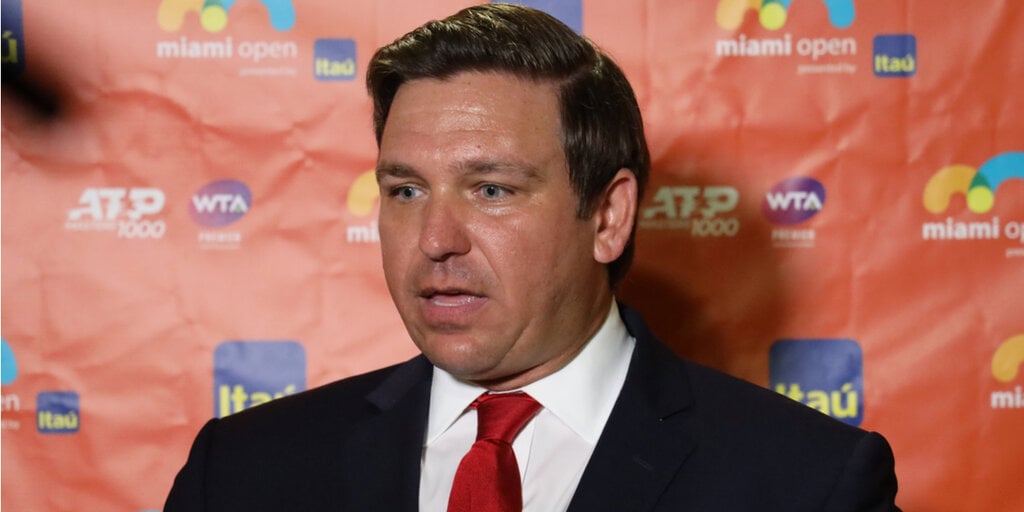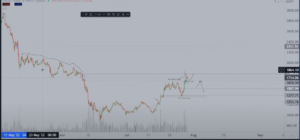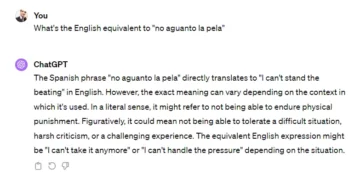
Florida Governor Ron DeSantis
Entrepreneur Vivek Ramaswamy
Senator Tim Scott of South Carolina
North Dakota Governor Doug Burgum
Could be a supporter, but it’s hard to tell
Honorable mention
Stay on top of crypto news, get daily updates in your inbox.
- SEO Powered Content & PR Distribution. Get Amplified Today.
- PlatoData.Network Vertical Generative Ai. Empower Yourself. Access Here.
- PlatoAiStream. Web3 Intelligence. Knowledge Amplified. Access Here.
- PlatoESG. Automotive / EVs, Carbon, CleanTech, Energy, Environment, Solar, Waste Management. Access Here.
- PlatoHealth. Biotech and Clinical Trials Intelligence. Access Here.
- ChartPrime. Elevate your Trading Game with ChartPrime. Access Here.
- BlockOffsets. Modernizing Environmental Offset Ownership. Access Here.
- Source: https://decrypt.co/153545/republican-debate-where-do-gop-candidates-stand-on-bitcoin
- :has
- :is
- :not
- :where
- $UP
- 2019
- 2023
- 2024
- a
- About
- absent
- Absolute
- Accepts
- accredited
- accused
- acknowledged
- Action
- Additionally
- administration
- Adopting
- After
- against
- All
- alongside
- already
- also
- alternative
- alternative assets
- Ambassador
- American
- an
- and
- appear
- ARE
- arkansas
- AS
- ASA
- asked
- aspects
- Assets
- At
- attend
- Bank
- Banking
- Banks
- BE
- because
- been
- before
- being
- biden
- Big
- Bill
- biotech
- Bitcoin
- bitcoin transactions
- both
- but
- by
- called
- Campaign
- candidate
- candidates
- Carlson
- Carolina
- CBDC
- CBDCs
- Center
- Centers
- central
- Central Bank
- central bank digital currencies
- Central Bank Digital Currencies (CBDC)
- Central Banks
- ceo
- Chair
- Chris
- claimed
- Coin
- Coindesk
- Collapse
- Commenting
- comments
- commission
- committee
- Companies
- Congress
- construction
- Consumers
- control
- country
- critiqued
- crypto
- crypto mining
- Crypto News
- Crypto regulation
- crypto sector
- cryptocurrencies
- cryptocurrency
- Cryptocurrency Mining
- currencies
- Currency
- cycle
- daily
- Dakota
- Dark
- data
- Data Center
- data centers
- day
- debate
- decision
- Decrypt
- define
- democratic
- deserve
- DID
- digital
- Digital Assets
- digital currencies
- digital dollar
- discusses
- do
- does
- Dollar
- dollars
- donald
- donating
- done
- Dont
- doubt
- doug
- during
- Early
- Election
- Elon
- Elon Musk
- embodiment
- emergence
- encourage
- enough
- entering
- Entrepreneur
- established
- EVER
- Every
- exchange
- Exchange Commission
- existing
- expressed
- external
- Failed
- failing
- fan
- February
- Federal
- federal reserve
- First
- For
- Former
- fox
- Fox News
- Francis
- francis suarez
- from
- FTX
- further
- Gary
- Gary Gensler
- gearing
- generational
- Gensler
- get
- given
- God
- good
- Governments
- Governor
- Greenback
- Growing
- Hard
- hat
- Have
- he
- hearing
- him
- his
- host
- How
- HTTPS
- Hub
- hutchinson
- i
- if
- important
- in
- individual
- industries
- Innovation
- instead
- Interview
- Interviews
- into
- investment
- Investors
- Issued
- issues
- IT
- Jersey
- joe
- Joe Biden
- just
- Know
- knowledge
- largest
- Last
- Last Year
- Late
- leading
- like
- little
- major
- make
- many
- May..
- Mayor
- member
- Miami
- mike
- millions
- Mining
- modify
- money
- Musk
- networks
- New
- New Jersey
- news
- no
- North
- North Dakota
- notably
- nothing
- November
- objectives
- of
- off
- official
- on
- once
- only
- Opportunity
- or
- Other
- our
- own
- owner
- owns
- past
- pegged
- People
- per
- pivotal
- plato
- Plato Data Intelligence
- PlatoData
- Play
- Plenty
- plethora
- Point
- potentially
- power
- president
- president joe biden
- presidential
- presidential candidate
- presidential election
- price
- primary
- Prior
- private
- Private Companies
- probably
- promising
- proponent
- public
- qualify
- Reaches
- reason
- reform
- Regulation
- relative
- Republican
- reputation
- Reserve
- respective
- right
- ROBERT
- RON
- rules
- s
- Said
- salary
- say
- scene
- scott
- SEC
- sector
- Securities
- Securities and Exchange Commission
- security
- Senate
- senate banking
- Senator
- set
- several
- similar
- since
- site
- something
- sought
- Sound
- sound money
- South
- South carolina
- sovereign
- Speaker
- Stablecoins
- Stage
- stand
- State
- States
- sunshine
- support
- supporter
- supportive
- Surrounding
- Take
- taken
- Talk
- Technology
- Tesla
- that
- The
- their
- These
- they
- Think
- this
- this week
- Tim
- tip
- to
- today
- Tokens
- too
- top
- trail
- Transactions
- transfer
- tv
- u.s.
- u.s. dollar
- Ultimately
- United
- United States
- upcoming
- Updates
- used
- very
- vice
- Vice President
- was
- washington
- we
- Wednesday
- week
- WELL
- were
- whether
- which
- WHO
- why
- will
- with
- within
- would
- year
- Your
- youtube
- zephyrnet
More from Decrypt
US Infrastructure Bill Crypto Clause Updated, But ‘Not Good Enough’ Yet Say Insiders
Source Node: 1005997
Time Stamp: Aug 2, 2021
Japanese Crypto Exchange Liquid Hacked for At Least $85 Million
Source Node: 1036270
Time Stamp: Aug 19, 2021
Here Are All the Bitcoin and Crypto Companies Airing a Super Bowl Ad
Source Node: 1604897
Time Stamp: Feb 8, 2022
Helium Founder Explains Why the Crypto Wireless Network Is Moving to Solana
Source Node: 1679195
Time Stamp: Sep 22, 2022
Mark Cuban Is Now Backing This Ethereum, Chainlink Data Project
Source Node: 925080
Time Stamp: Jun 16, 2021
ConstitutionDAO Lost Auction to Anti-Bitcoin Citadel CEO Ken Griffin
Source Node: 1116434
Time Stamp: Nov 19, 2021
Terra’s Luna Classic Gains Big as Binance Burns Untold Tokens
Source Node: 1716562
Time Stamp: Oct 2, 2022













